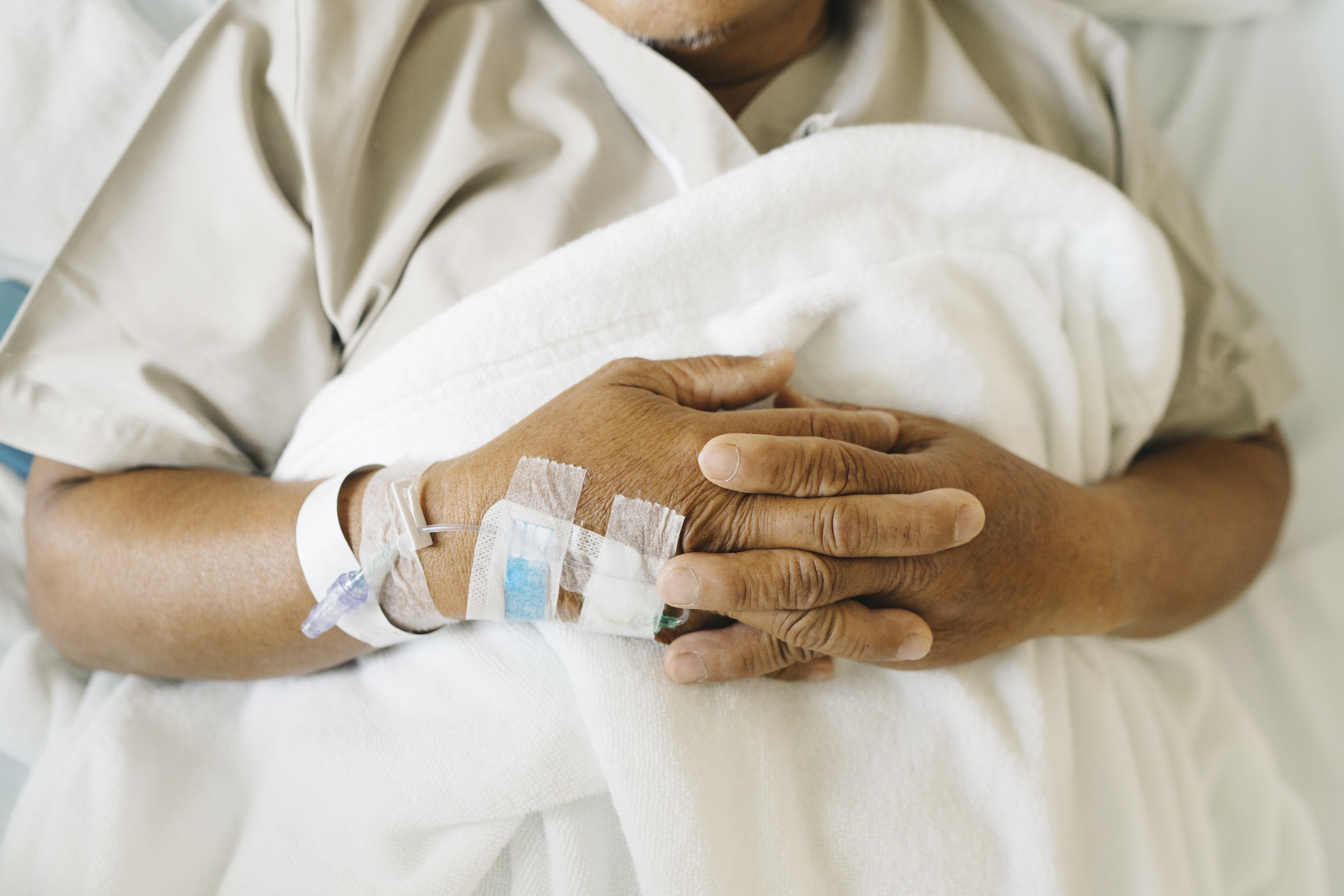Managing the Side Effects of Chemotherapy
7 min read

Effectively managing the day-to-day side effects of chemotherapy treatment involves a holistic, team-based plan that includes the expertise of oncology practitioners, primary care providers, and allied healthcare professionals. A proactive approach to managing negative side effects, or adverse drug reactions, can help patients be more resilient and improve their quality of life. Primary care providers and other members of the team who have an established relationship with the patient are often well-suited to start the conversation about how adverse drug reactions impact daily functioning.
With more than a hundred chemo drugs in use, there’s a wide range of potential adverse drug reactions. The type of cancer being treated and the patient’s baseline health can further influence chemotherapy side effects and their severity. However, discussing a few of the most common side effects of chemotherapy treatment is a great place to start finding the right solutions for your patients.
Rocky Mountain Cancer Centers (RMCC) provides information sessions during which a patient meets with a registered nurse or nurse practitioner to discuss the side effects of chemotherapy and how to manage these symptoms. Family and friends are encouraged to attend these sessions.
Cognitive Changes
Chemo brain can be one of the most frustrating chemotherapy side effects your patients experience. It typically improves slowly after completing treatment. However, some people may have lingering, lifelong executive functioning issues, including attention to task, difficulty with sequencing, impaired problem-solving, and challenges with recall and short-term memory.
Primary care providers can help track cognitive changes by obtaining a baseline cognitive functioning level and reassessing during and after chemo. Patients with long-term cognitive side effects of chemotherapy may benefit from speech therapy or occupational therapy (OT) to improve cognition and executive functioning skills related to communication or daily living skills.
These strategies may also be beneficial:
 Avoid multitasking.
Avoid multitasking.- Break tasks into smaller pieces.
- Do challenging tasks early in the day.
- Exercise regularly, if medically able.
- Follow a consistent daily routine.
- Have a place to put frequently needed items, including glasses and keys.
- Keep a small notebook or use a phone app to record important dates, numbers, and to-do lists.
- Let other people know about chemo brain so they can help.
- Practice meditation.
- Record side effects daily.
- Use an alarm, pill box, or medication reminder app to remember to take medications.
Fatigue
Nearly all people who go through chemotherapy treatment will experience fatigue. Because chemotherapy kills healthy cells and cancer cells, low platelet and red blood cell counts may contribute to fatigue. Dehydration, insomnia, lack of exercise, and stress may also play a role.
To help manage fatigue, patients can:
- Ask for help.
- Pay attention to body mechanics during activities.
- Plan out complex tasks or errands to avoid extra trips to the kitchen or across town.
- Save energy by using adaptive equipment or durable medical equipment, such as a shower chair.
- Schedule short breaks during the day – a short nap of 30 minutes or less may also be beneficial.
- Sit down during tasks, such as folding laundry or mixing ingredients.
- Spread out physically challenging tasks throughout the day or week.
- Stick to a consistent bedtime routine that includes turning screens off.
- Take care of mental health – depression may look like fatigue.
- Take short walks, if possible. This helps the body regulate its metabolism and helps patients get more restful sleep.
Rocky Mountain Cancer Centers (RMCC) offers a medically integrated pharmacy that can save patients the extra trip to the neighborhood pharmacy for oral cancer medications and supportive care. RMCC pharmacists can verify Medicare and supplemental health care coverage, provide on-site education, and answer your questions about the medication.
If needed, an OT, physical therapist, or social worker can provide additional training and support when planning activities, modifying the environment or tasks, or using mobility devices to help manage fatigue.
Hair, Nail, and Skin Changes
Chemotherapy treatment may cause a range of hair, nail, and skin changes, which can be physically painful and emotionally challenging for many people with cancer.
There are ways to help your patients cope with these changes. They can:
 Ask about a cooling cap that may help prevent hair loss.
Ask about a cooling cap that may help prevent hair loss.- Apply cool packs to the skin to reduce itching.
- Apply 40% urea cream and thick emollients, such as Aquaphor®, to prevent cracked skin on the hands and feet and around the nails.
- Wash with cool or lukewarm water instead of hot water.
- Use an electric razor to decrease skin irritation.
- Try a water-soluble nail lacquer or prescription nail polish to protect brittle nails.
- Wear shoes with a wider toe box to avoid pressure on toenails.
If patients would like to use a hat, scarf, or wig due to hair loss, talk to them about choosing materials that are gentle on the skin and not too tight. These items can also lift a patient’s mood and increase socialization. Patients may also want to learn how to apply makeup safely during cancer treatment.
Immunosuppression
People undergoing chemotherapy treatment are at increased risk of infection due to low white blood cell count.
To help your patients manage a compromised immune system:
- Ask them to avoid crowds and wear a mask in public.
- Encourage frequent hand washing.
- Ensure vaccinations are up to date.
- Instruct patients to immediately call a provider if they have a fever over 100.4 F.
- Prescribe prophylactic antibiotics if white blood cell counts are low.
When possible, encourage patients to take advantage of telehealth appointments to lower their risk of exposure and aid in energy conservation.
Lymphedema
Chemotherapy can cause lymphedema in many areas of the body. It most commonly occurs in the arms or legs. Breast cancer patients and survivors, in particular, are at increased risk for upper extremity lymphedema. Because lymphedema is often a chronic condition, it is essential for your patients to learn how to manage it as early as possible to avoid complications, remain independent, and improve their quality of life.
Lymphedema massage and therapy from a qualified lymphedema therapist are commonly used to manage symptoms. If compression garments or wrappings are prescribed, ensure your patient knows how to wear or remove items independently or has a caregiver who can provide consistent support.
Patients may benefit from OT to learn how to safely and efficiently complete daily living and leisure activities, modify tasks, and use adaptive equipment or assistive technology if needed. Additionally, PT can help manage symptoms through exercise or teach the patient to use a mobility device.
Mental Health Concerns
Chemotherapy treatment may lead to various mental health conditions, including anxiety and depression. Cancer survivors also commonly experience significant survivorship guilt.
To support your patient’s mental health:
- Address patient concerns regarding intimacy and sexual health.
- Connect your patient to an RMCC social worker or another mental health professional for talk therapy.
- Encourage them to join a support group.
- Ensure caregivers also receive the support they need.
- Suggest a one-on-one session with an RMCC RN or NP to review their side effects and receive individualized support.
- Talk with patients regarding early menopause or fertility concerns.
- Recommend breathing exercises, meditation, or mindfulness to decrease stress and assist in managing fatigue and pain.
Neuropathy
Nerve damage is a common side effect of chemotherapy. Patients often experience neuropathy in their hands and feet and may have it in other parts of the body. It may take up to two years for nerve damage to heal, and some people will have chronic neuropathy following chemo.
Patients may benefit from these strategies to manage neuropathy:
- Checking the water temperature with an unaffected hand or foot to help prevent burns
- Consulting with an OT to identify adaptive equipment or assistive technology to increase independence or safety with tasks
- Using peripheral cooling devices, such as mitts and booties, during chemotherapy, which can be helpful for patients receiving certain breast cancer chemotherapies
- Doing a home safety assessment to identify and address any potential safety concerns in the home, such as cords, sharp corners on furniture, or uneven flooring
- Performing daily skin checks
- Putting on protective gloves for tasks, such as cooking or gardening, that involve sharp tools
- Using a flashlight or nightlights to prevent falls and injuries
- Wearing shoes at all times to prevent foot injuries
Osteoporosis
Though osteoporosis is a common and serious side effect of chemotherapy treatment, patients may not know they have the condition. For women who have gone through menopause, including early menopause, primary care providers should order a baseline bone density test and repeat testing every two to five years based on the results.
Primary care providers can also:
- Encourage participation in reconditioning and strengthening programs once patients are medically able.
- Provide a referral to an endocrinologist for further osteoporosis-related testing and treatment.
- Recommend dietary calcium and vitamin D supplements.
RMCC hematologists and oncologists can also prescribe medication for bone strengthening that may be especially helpful for breast cancer patients.
RMCC’s oncology experts provide extensive options for cancer treatment, side effect management, and support for all stages of the cancer journey. Refer a patient to learn more about how our team can help.